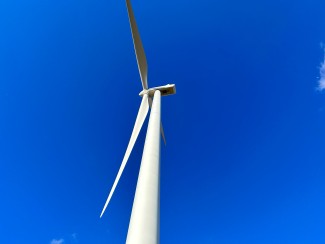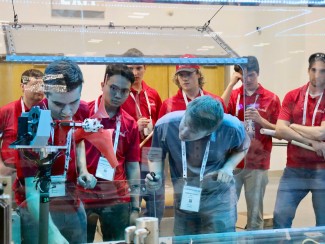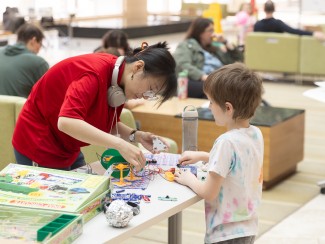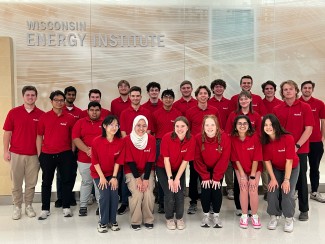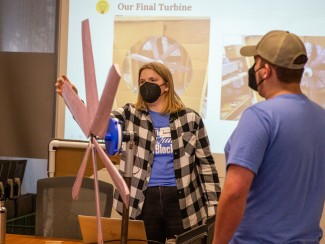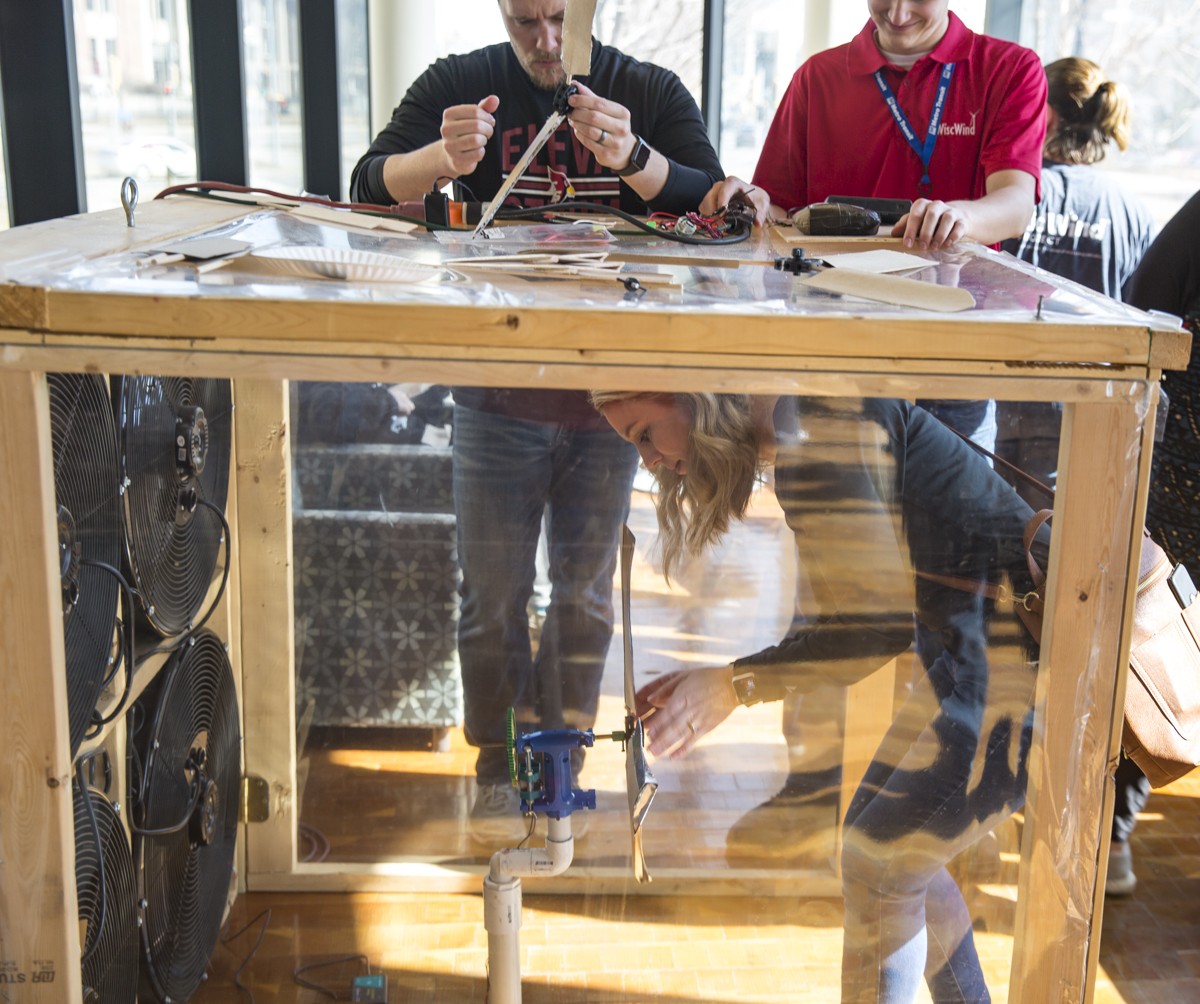
As a wind energy technology instructor at Lakeshore Technical College, Justin Barrett is used to handling questions about jobs in the fast-growing wind turbine industry. But at a recent presentation, those questions came from a somewhat unusual audience: middle schoolers and their parents.
Barrett was giving a “tech talk” at the third annual Wisconsin KidWind Challenge, hosted March 7 at the Wisconsin Energy Institute (WEI) at the University of Wisconsin–Madison. KidWind, a national organization that promotes renewable energy education in schools, has been organizing official competitions for middle and high schoolers since 2009. At these competitions, student teams test model wind turbines they designed and constructed. Teams also present their design process to expert judges and participate in instant challenges, such as deciding where a turbine should be placed for maximum energy production, to show their teamwork and ability to think on their feet.
This year’s Wisconsin competition saw a jump to 18 teams from last year’s six, drawing competitors from across Wisconsin — and, for the first time, northern Illinois. Teams from Wisconsin’s reigning champion, Darlington Community School District, took home the top prizes again in both the middle and high school divisions, as well as the second and third place spots in the middle school division. Two teams from Mauston High School rounded out the top three in the high school competition.
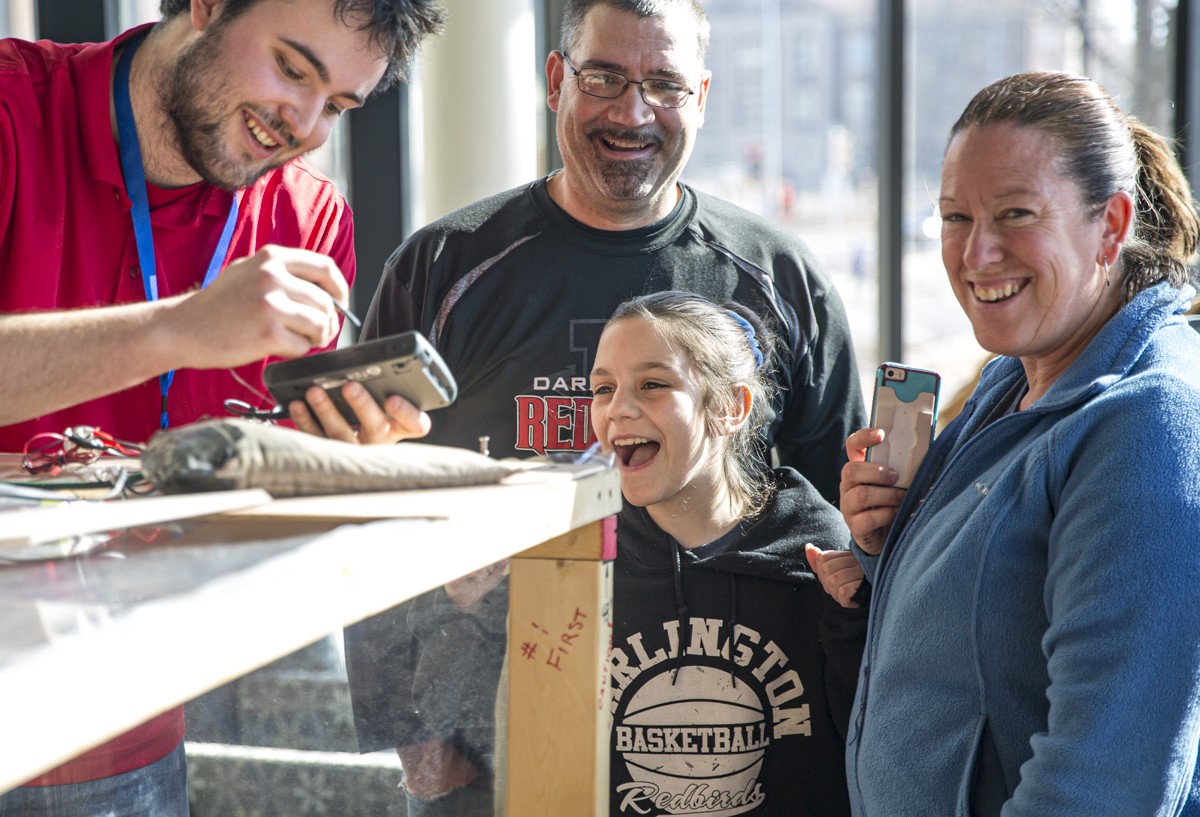
The two top-scoring middle school teams, Darlington’s Gusty Goons and HAWT-ies, will be advancing to this year’s national competition, planned for June 2–4 in Denver, Colo.
“They’re a very competitive group. They want to do their best and share their knowledge. Besides going to nationals, they like to succeed and show us all that they’ve learned,” said coach Mark Acherman, fifth- and sixth-grade science teacher at Darlington Middle School. Acherman attributes much of the town’s KidWind success to local teachers’ dedication to guiding the students — including Dick Anderson, the retired shop teacher who first brought KidWind to Wisconsin and promoted it in the Darlington area.
The Darlington Quilt Blockers and the Mauston Juniors, the top two high school teams, also qualified for nationals and hope to attend if possible.
KidWind competitions help train the next generation of potential engineers and technicians, organizers say. But they also educate families and communities about the benefits of bringing wind energy to their area. For example, Anderson has been connecting with wind developers across Wisconsin about sponsoring KidWind as a way to educate the public about these benefits.
“Supporting teams in Wisconsin communities that might consider wind farms has given these companies a way to create a dialogue with residents who might be directly impacted,” says Allison Bender, WEI outreach coordinator and an organizer of Wisconsin’s KidWind Challenge. “KidWind is a good way for companies to help people become better informed about wind energy.”
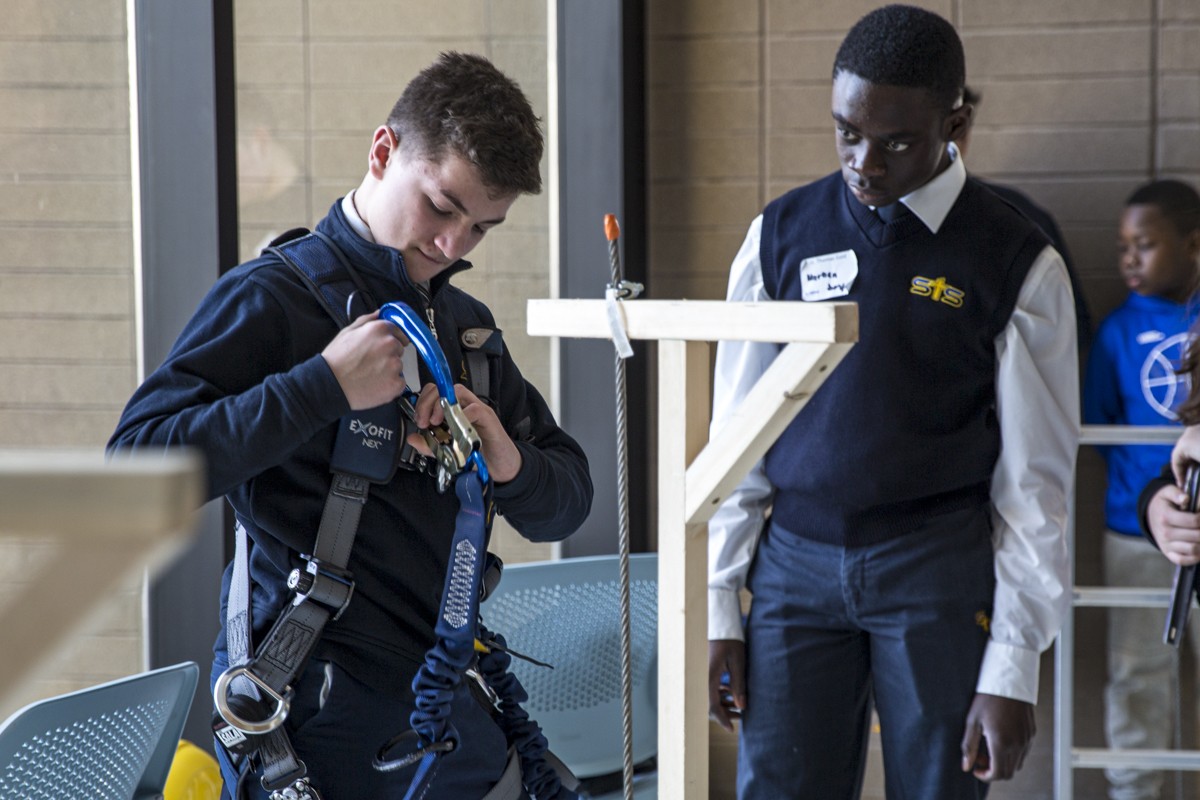
The primary focus of KidWind, however, is the kids. The participants, parents and coaches at the event talked about how much fun the kids have learning about energy, building their turbines and competing as a team.
"My favorite thing about it is how we as a team grow. We all had different ideas and we put them together and that actually makes it better in the end,” said a fifth-grade member of the Cardinal Flight team from Eleva-Strum Middle School in Trempealeau County.
Nate Wiegel’s daughter Sophie, a Darlington eighth-grader, has participated in all three of Wisconsin’s KidWind Challenges. Wiegel especially appreciates the encouragement KidWind has provided to get girls interested in science, technology, engineering and math (STEM) fields.
"Prior to starting this in sixth grade, the majority of the girls would not have targeted a STEM profession,” Wiegel said. “But now, in terms of what they’ve seen and been able to do and the knowledge they’ve gained, I think they’re a lot more likely to choose an area of STEM because they see the rewards they’ve been getting from it.”
As KidWind participants develop knowledge about wind energy, those rewards may include a cleaner energy future for Wisconsin — built on renewable sources rather than fossil fuels.

